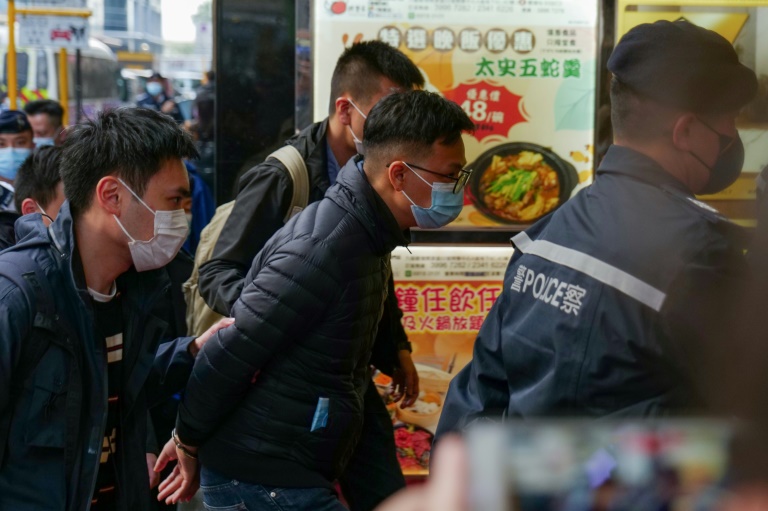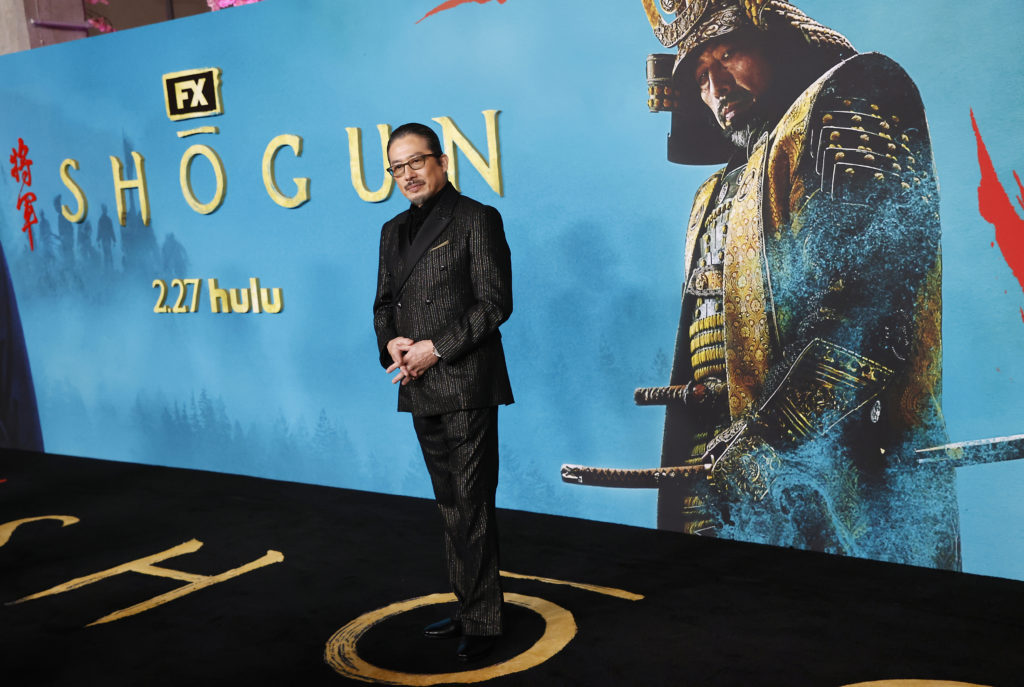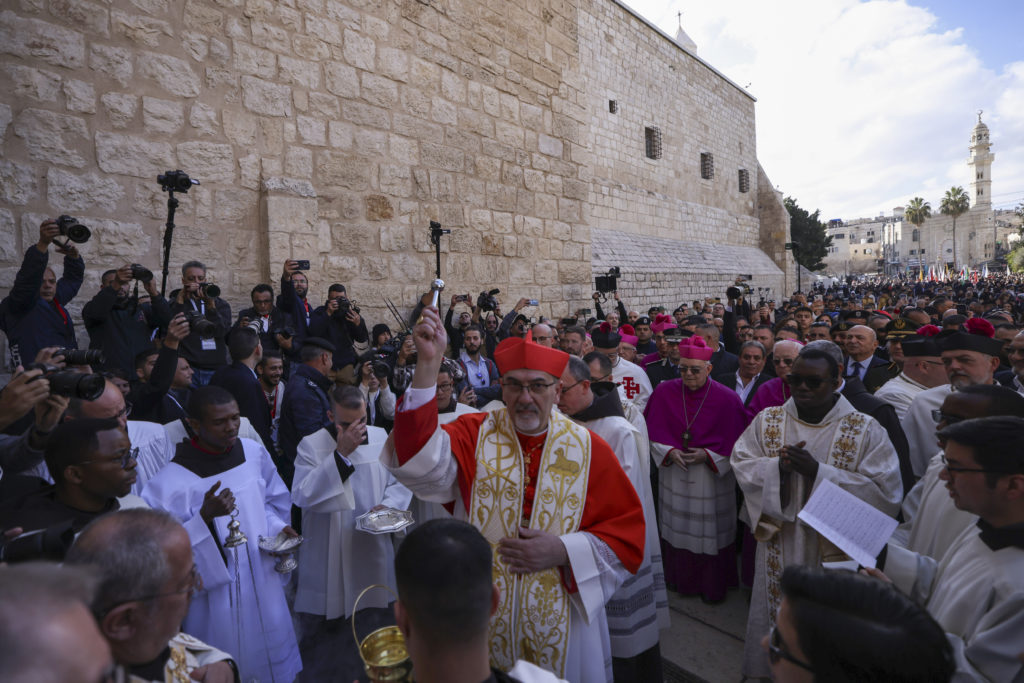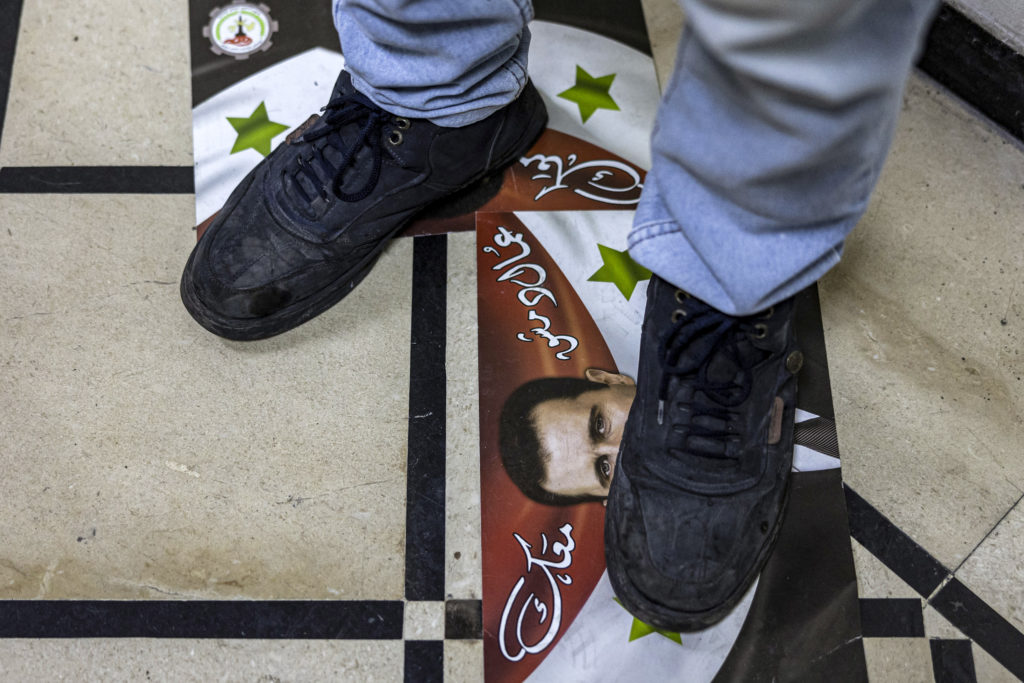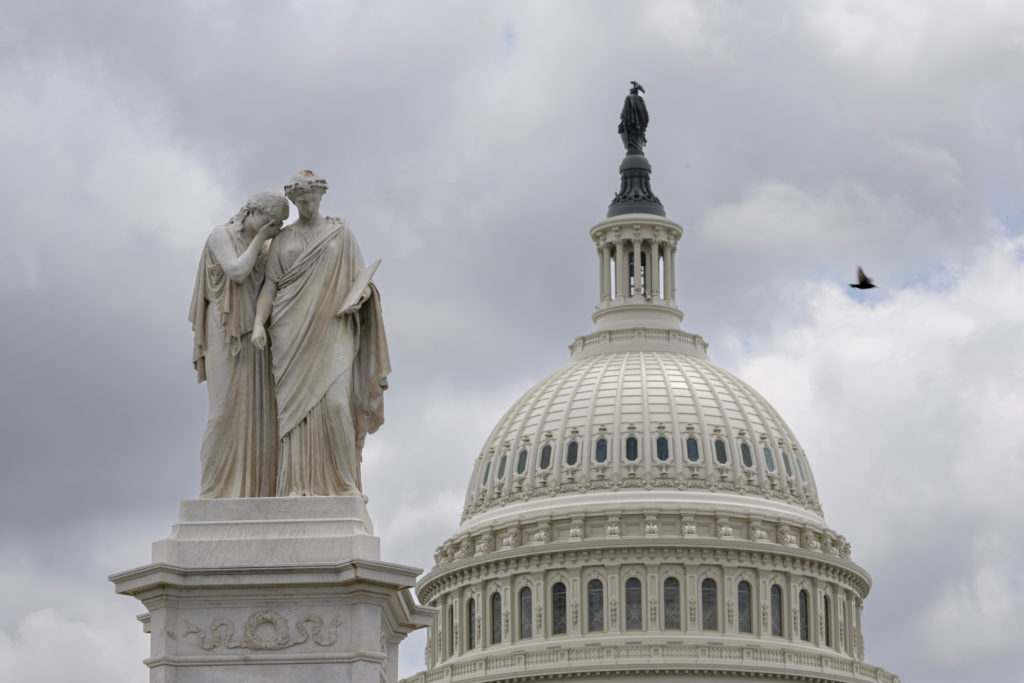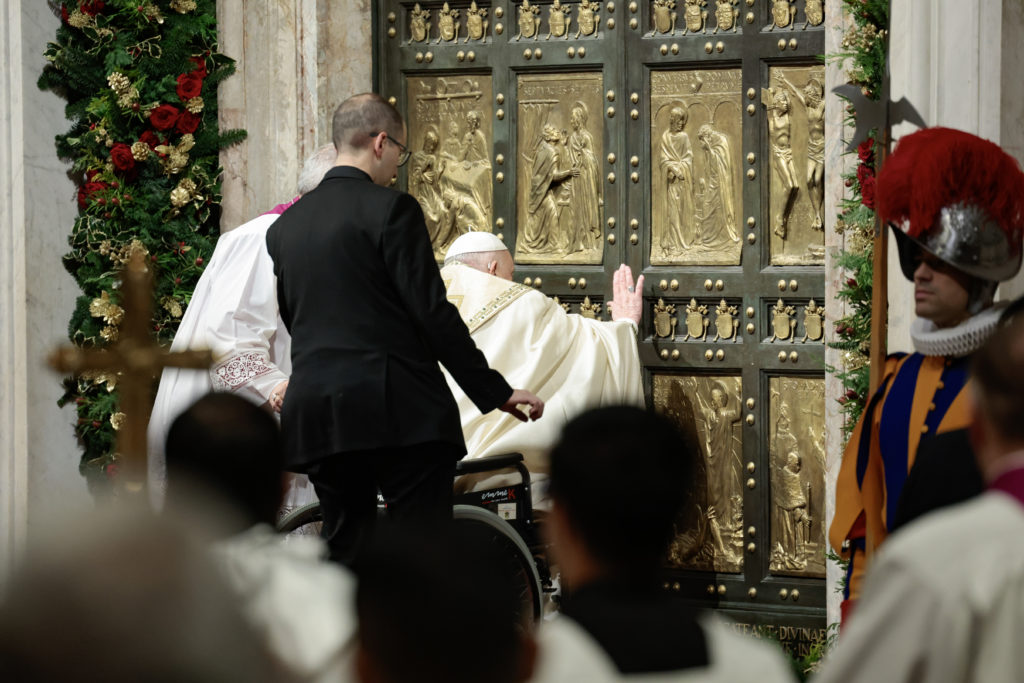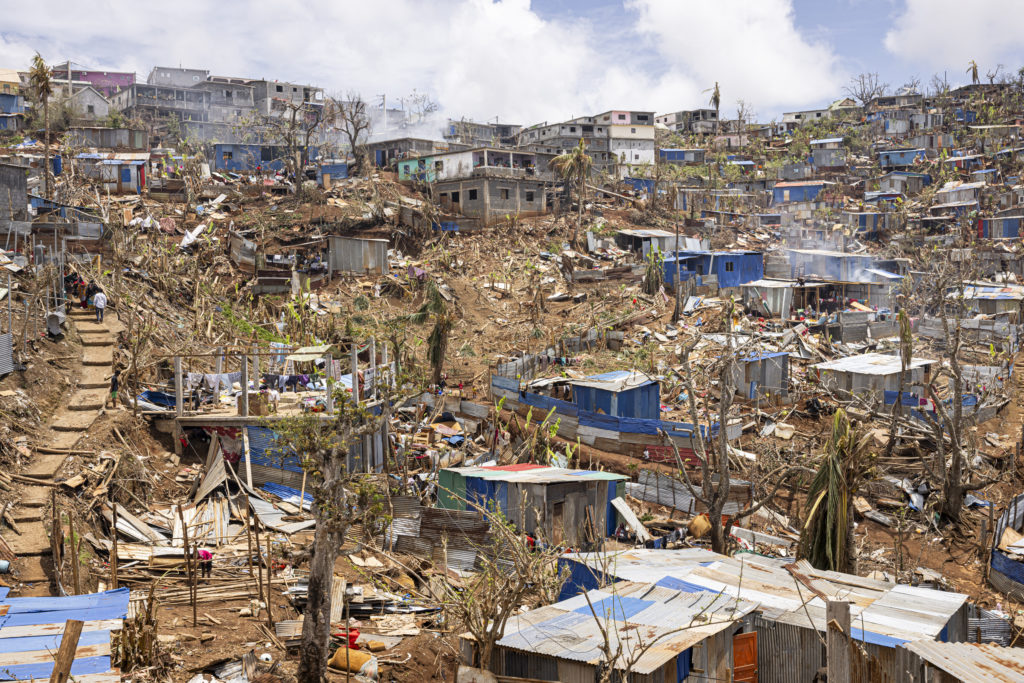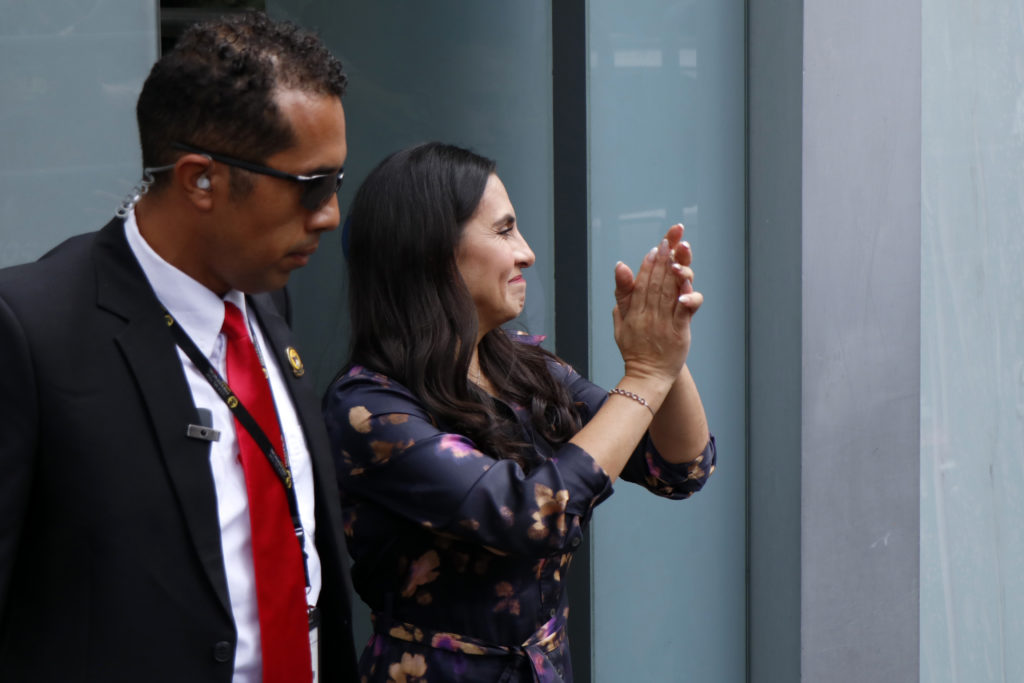Two senior editors of Hong Kong media outlet Stand News were charged with “conspiracy to publish seditious” material on Thursday, authorities said, following a raid that drew international condemnation over China’s crackdown on press freedom in the city.
China has tightened its control of Hong Kong since massive and sometimes violent pro-democracy protests engulfed the financial hub in 2019, using a sweeping national security law to clamp down on dissent.
Police stormed into the Stand News office in the latest crackdown on Wednesday, seizing phones, computers, documents and thousands of dollars. Its acting editor-in-chief Patrick Lam was brought handcuffed to the headquarters during the search.
Lam and former editor-in-chief Chung Pui-kuen were charged along with Stand News’ parent company for conspiring “together and with other persons, to publish and/or reproduce seditious publications,” according to court documents. Chung and Lam were arrested on Wednesday with five others.
Among the violations listed on the charge sheet were the promotion of “hatred or contempt or to excite disaffection” against the government and the incitement of “persons to violence”.
The Chinese government’s liaison office in Hong Kong termed the arrests an “act of justice” and accused Stand News of inciting secession.
“Bringing the relevant Stand News personnel to justice is a matter of ‘the wicked getting what they deserve’ and has nothing to do with freedom of the press,” a spokesperson said in a statement.
Chung, 52, appeared in court on Thursday afternoon, nodding to acknowledge supporters in the public gallery — including several former Stand News employees.
Lam’s lawyer told the court her client had been hospitalised and was therefore absent from proceedings. No legal representative appeared on behalf of Stand News’ parent company.
More than 200 officers were deployed to search the Stand News office with court authorisation to seize journalistic materials.
Its assets of around HK$61 million ($7.8 million) were also frozen, with senior official Steve Li saying it was one of the largest sums the police’s national security unit has ever seized.
Stand News announced after the raid that it would cease operations.
China’s foreign ministry hit out at “irresponsible” criticism of the arrests on Thursday after the US, Canada and the EU condemned the raid and Beijing’s wide-ranging crackdown on press freedom in the semi-autonomous city.
“Some external forces, under the guise of media freedom, have been making irresponsible remarks about law enforcement in Hong Kong,” foreign ministry spokesman Zhao Lijian said at a briefing.
“But media freedom and freedom of speech cannot be a shield for criminal acts.”
China also slapped sanctions on five US citizens “freezing their assets in China, and banning Chinese citizens and organisations from dealing with them” in response to a US advisory on deteriorating freedoms in Hong Kong.
– ‘Journalism is not sedition’ –
US Secretary of State Antony Blinken said the raid and wider crackdown on press freedom by China and “local authorities undermine Hong Kong’s credibility and viability”.
“Journalism is not sedition,” Blinken said.
“A confident government that is unafraid of the truth embraces a free press.”
Hong Kong leader Carrie Lam responded on Thursday, saying she agreed with Blinken’s sentiment that “journalism is not sedition” but added that seditious acts “could not be condoned under the guise of news reporting”.
Lam accused Western governments of trampling on Hong Kong’s rule of law by calling for charges to be dropped.
“These actions have nothing to do with so-called suppression of press freedom or so-called suppression of democracy, as some would put it,” she said.
The city has been transformed after the powerful security law was imposed a year ago, empowering authorities to arrest pro-democracy activists and bar anyone considered disloyal from running for public office.
Stand News is the second Hong Kong media company targeted by the authorities after pro-democracy newspaper Apple Daily — which shut down in June after its assets were frozen under the national security law.

